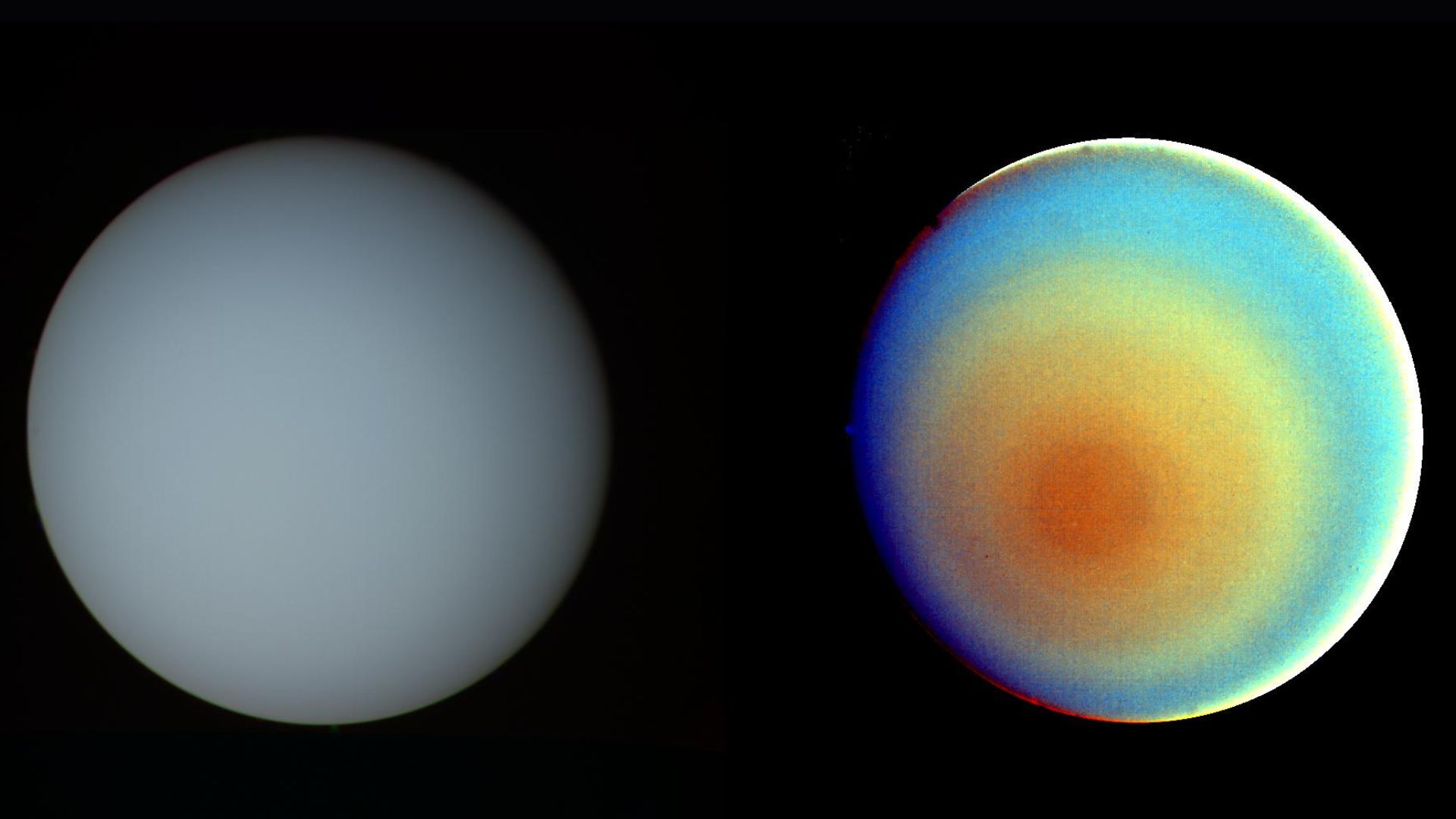'Dicey' Forecast Lingers for Shuttle Launch
Get the world’s most fascinating discoveries delivered straight to your inbox.
You are now subscribed
Your newsletter sign-up was successful
Want to add more newsletters?

Delivered Daily
Daily Newsletter
Sign up for the latest discoveries, groundbreaking research and fascinating breakthroughs that impact you and the wider world direct to your inbox.

Once a week
Life's Little Mysteries
Feed your curiosity with an exclusive mystery every week, solved with science and delivered direct to your inbox before it's seen anywhere else.

Once a week
How It Works
Sign up to our free science & technology newsletter for your weekly fix of fascinating articles, quick quizzes, amazing images, and more

Delivered daily
Space.com Newsletter
Breaking space news, the latest updates on rocket launches, skywatching events and more!

Once a month
Watch This Space
Sign up to our monthly entertainment newsletter to keep up with all our coverage of the latest sci-fi and space movies, tv shows, games and books.

Once a week
Night Sky This Week
Discover this week's must-see night sky events, moon phases, and stunning astrophotos. Sign up for our skywatching newsletter and explore the universe with us!
Join the club
Get full access to premium articles, exclusive features and a growing list of member rewards.
CAPE CANAVERAL, Fla. — A poor weather forecast continues to threaten a Thursday launch attempt of the space shuttle Atlantis, but NASA mission managers haven't thrown in the towel yet.
Monday's launch-day forecast here at Kennedy Space Center (KSC) called for worrisome rain and low-ceiling clouds on Feb. 7. Now thick anvil clouds that might produce thunderstorms are expected around the 2:45 p.m. EST (1945 GMT) launch time.
"Today's going to be our last day of sunny, hot weather in central Florida," said Mike McAleenan, a NASA launch weather officer. He explained that a massive cold front is propelling the problematic conditions toward Atlantis, which now sits at launch Pad 39A. "That's going to be — causing some dicey weather for area Thursday."
Despite the threat of thunderstorms, however, McAleenan said there's still a 40 percent chance that Atlantis will make a space shot on Thursday — the same prediction weather officers offered on Monday.
"The launch time makes a difference," he said, noting that a launch attempt later in the day (when thunderstorms often peak) would have a considerably reduced chance of passing NASA's flight rules.
Rain during a launch can damage the heat-resistant tiles beneath Atlantis as it rockets into orbit, while a stray bolt of lightning could have explosive consequences after the spaceship leaves the lightning protection system of the launch pad. Bill Johnson, a NASA spokesperson at KSC, said mission managers will postpone a launch if there's any lightning within an 11.5-mile (18.5-km) radius of the shuttle shortly before launch.
NASA test director Steve Payne said the agency will wait to seriously discuss a launch delay until early Thursday morning, when filling of Atlantis' 500,000-gallon (1.9 million-liter) external fuel tank is set to begin.
Get the world’s most fascinating discoveries delivered straight to your inbox.
"If we tank we're going to make a run at [launch], if we don't tank we're going to hold off and see if the weather improves," Payne told SPACE.com.
Aside from KSC, weather conditions at emergency landing sites in the U.S., France and Spain violate none of NASA's stringent flight rules. Should a hole in the clouds not open up for launch on Thursday, mission managers will try again at around 2:20 p.m. EST (1920 GMT) on Friday Feb. 8.
The seven astronauts of Atlantis, in the meantime, have undergone medical exams and flown training flights in NASA T-38 jets in preparation for their 11-day mission to the International Space Station (ISS).
NASA's prime goal with the crew's STS-122 mission is to deliver the long-awaited Columbus module, a cylindrical room that weighs about 10.3 tons and houses 10 phone-booth-sized racks, to the ISS.
Commander Stephen Frick will lead the mission and will be accompanied by pilot Alan Poindexter, mission specialists Leland Melvin, Rex Walheim and Stanley Love. European Space Agency astronauts Hans Schlegel and L?opold Eyharts also join the crew. Eyharts will replace ISS Expedition 16 crew member Dan Tani, who will return to Earth in mid-February with the STS-122 astronauts.
NASA will broadcast Atlantis' STS-122 mission live on NASA TV. Click here for SPACE.com's STS-122 mission coverage and NASA TV feed.
 Live Science Plus
Live Science Plus










